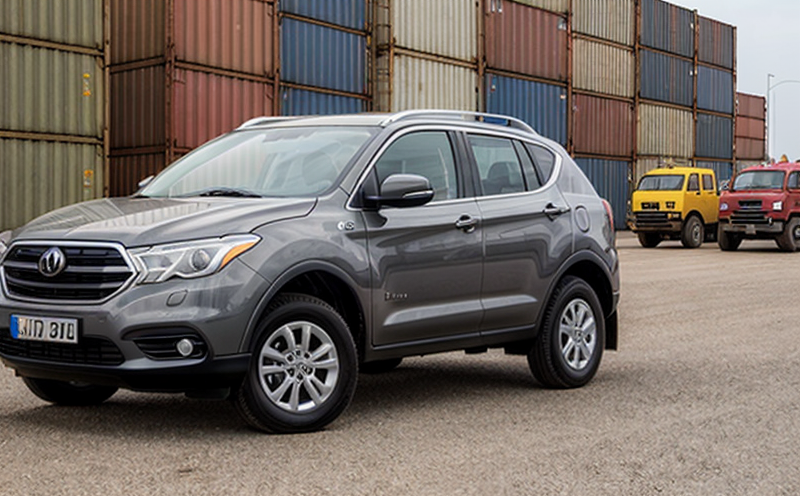Vehicle Certification for Export: A Comprehensive Guide
The process of exporting vehicles to other countries involves several regulatory requirements that must be met before the vehicle can be cleared for export. One critical aspect of this process is obtaining the necessary certifications for the vehicle, which confirms its compliance with international standards and regulations.
The need for certification arises from the fact that different countries have varying safety and environmental standards, and manufacturers must ensure that their vehicles meet these requirements to avoid fines, penalties, or even rejection by customs authorities. In this article, we will delve into the process of obtaining vehicle certifications for export, highlighting key considerations, regulations, and best practices.
Regulatory Framework
The regulatory framework governing vehicle certification for export is complex and involves multiple stakeholders, including government agencies, international organizations, and industry associations. The primary driver behind these regulations is public safety, as vehicles are considered a critical component of transportation infrastructure.
Some key regulatory bodies involved in the process include:
United Nations Economic Commission for Europe (UNECE): Develops and maintains international standards for vehicle safety and emissions.
Worldwide harmonized Light Vehicle Test Procedure (WLTP): Provides a standardized method for measuring vehicle emissions.
International Organization for Standardization (ISO): Establishes global standards for various industries, including the automotive sector.
Certification Process
The certification process involves several steps that are outlined below:
1. Determine the regulatory requirements of the destination country.
2. Gather documentation from the manufacturer or supplier, including:
Vehicle identification number (VIN)
Production certificate
Technical specifications
3. Obtain an export permit or license from the relevant authorities in the exporting country.
4. Conduct inspections and testing to ensure compliance with international standards.
Some key certifications required for vehicle export include:
Compliance Certification: Confirms that the vehicle meets regulatory requirements, such as emissions and safety standards.
Conformity Certificate: Verifies that the vehicle conforms to international standards, including labeling and documentation.
Export License: Required by many countries to ensure that vehicles are exported in compliance with trade regulations.
Additional Requirements
In addition to the certification process outlined above, there may be additional requirements depending on the destination country. These can include:
Homologation: The process of adapting a vehicle for use in another country.
Type Approval: A mandatory requirement for vehicles being exported to certain countries.
Labeling and documentation: Vehicles must comply with labeling and documentation regulations, including language requirements.
Importance of Compliance
The importance of compliance cannot be overstated. Failure to obtain the necessary certifications or meet regulatory requirements can result in:
Delays: Export delays due to non-compliance can cost manufacturers thousands of dollars per day.
Penalties: Fines and penalties for non-compliance can be substantial, potentially exceeding 10,000 per vehicle.
Reputation damage: Non-compliance can harm a manufacturers reputation and jeopardize future business opportunities.
QA Section
Here are some additional questions and answers related to vehicle certification for export:
1. What is the difference between compliance certification and conformity certificate?
Compliance certification confirms that the vehicle meets regulatory requirements, while a conformity certificate verifies that the vehicle conforms to international standards.
2. Can I obtain an export permit or license on my own, or do I need to work with a third-party service provider?
It is recommended to engage the services of a reputable third-party provider who has experience in obtaining export permits and licenses.
3. What are the consequences if I fail to meet regulatory requirements for vehicle certification?
Failure to meet regulatory requirements can result in delays, penalties, or even rejection by customs authorities.
4. Can I use the same documentation for all countries, or do I need to gather specific documents for each country?
Depending on the destination country, you may need to obtain specific documentation or certifications.
5. How long does the certification process typically take?
The length of time required for the certification process can vary depending on the complexity of the requirements and the efficiency of the regulatory authorities.
In conclusion, obtaining vehicle certifications for export is a critical aspect of ensuring compliance with international standards and regulations. Manufacturers must engage with reputable third-party providers to navigate the complex regulatory framework and avoid potential penalties or delays.

































